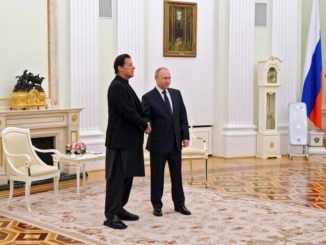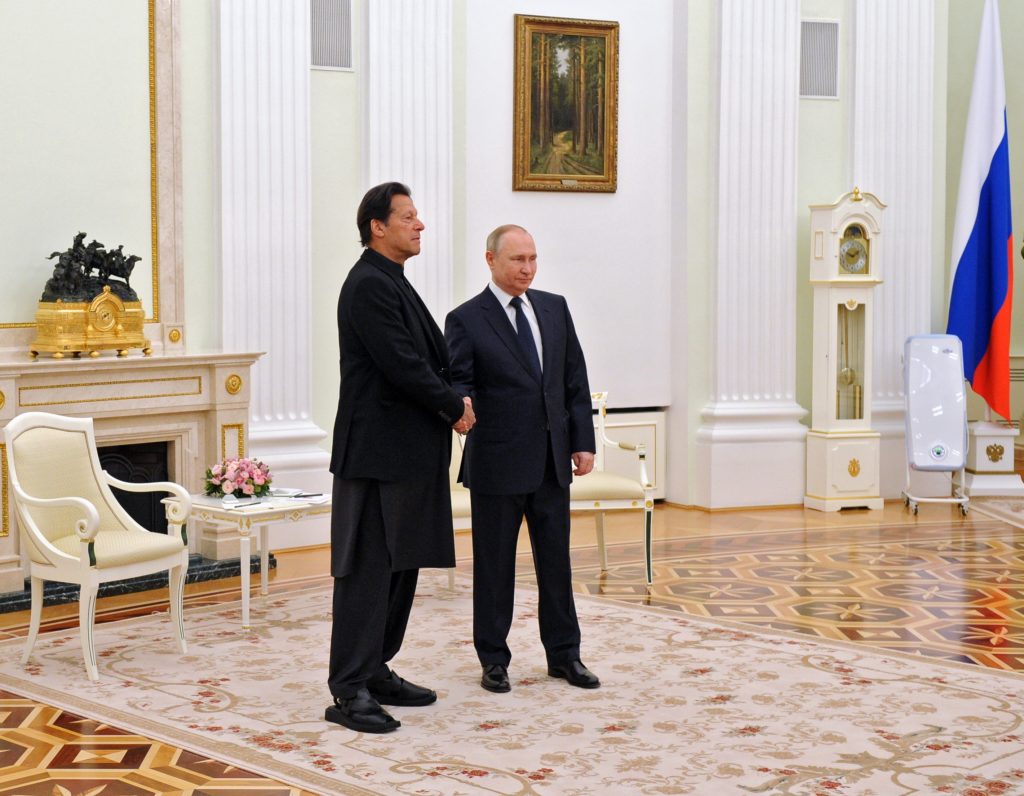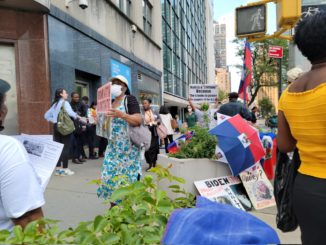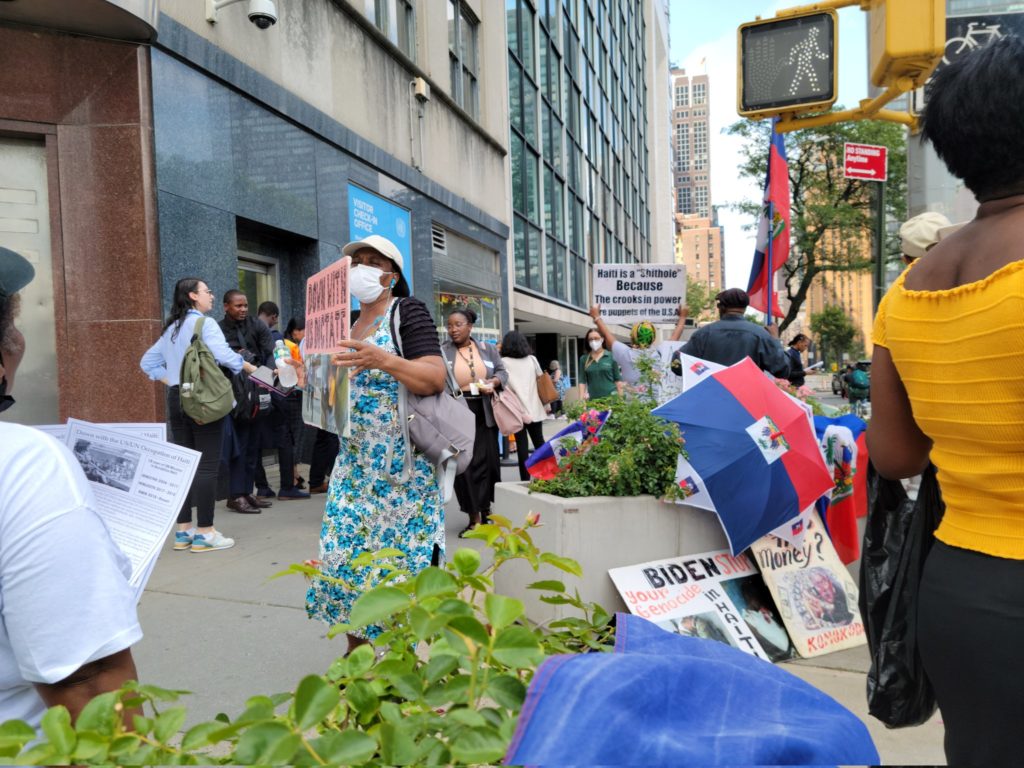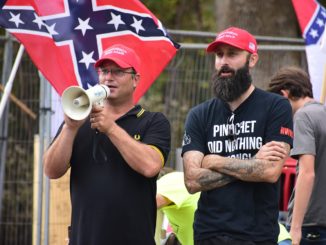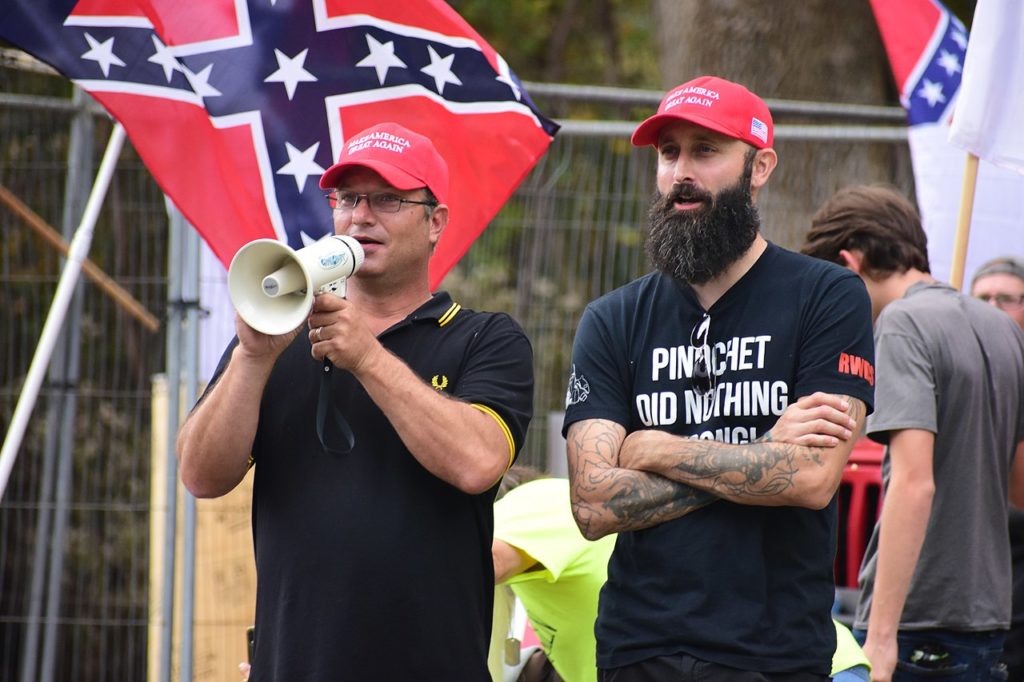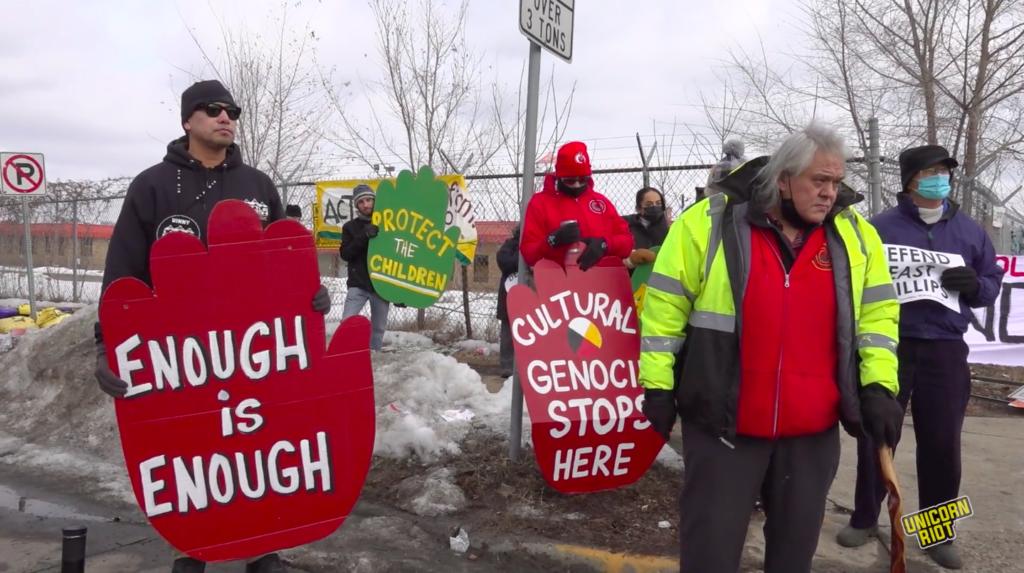
Editor’s Note: To help our international readers understand this Unicorn Riot story, we provide the following context. Roof Depot is a closed warehouse that the U.S. Environmental Protection Agency has deemed a Superfund site, which means it has been identified as a candidate for cleanup of hazardous materials. Further, East Phillips is a neighborhood in the U.S. Midwestern city of Minneapolis. Find here a scan of the physical press release that has been cited below.
MINNEAPOLIS, United States—East Phillips residents and members of the American Indian Movement (AIM) started an occupation of the Roof Depot site in the early hours of Tuesday morning in resistance to the city’s plan to demolish the site which sits atop decades of arsenic contamination. Demands include an end to the demolition plan, no more additional polluting facilities and an end to evictions of encampments. [After the publication of this article, the occupation was evicted by Minneapolis Police on Tuesday evening. Eight people were reportedly detained and released.]
In the “arsenic triangle” in the most diverse neighborhood in Minnesota, the Roof Depot site is set for demolition next week against the wishes of many in the community who are fearful of the toxic impacts on their health and the health of future generations.
A tipi was erected in the morning, along with over a dozen tents and a sacred fire. In the morning, Unicorn Riot livestreamed the beginning of the occupation as well as an afternoon press conference.
Watch the press conference that took place at 1 p.m. at 27th Street and Longfellow Avenue below.
A press release from Defend the Depot said the community is demanding the city officials cancel the demolition and made seven specific demands. They also provided a brief history of the past century of heavy pollution on East Phillips, where the Roof Depot EPA Superfund site exists.
“For generations, East Phillips, a neighborhood of over 70% residents of color and home to the majority Indigenous Little Earth housing development, has been treated as an environmental sacrifice zone. For the last century, East Phillips has been zoned for heavy industrial pollution. According to US EPA data, the area within a one-mile radius of the Roof Depot site ranks nationally in the 89th percentile for diesel particulate matter, the 99th percentile for Superfund Proximity, and the 96th percentile for hazardous waste proximity.”
Press release from Defend the Depot – Feb. 21, 2023
The list of demands includes an end to encampment evictions and the creation of a new ‘navigation center’ for the unhoused people to access support, referrals, and resources:
- Total relocation of the Hiawatha Expansion Project
- Hand over control of Roof Depot site to the community
- Plans to remove of Bituminous Roadways and Smith Foundry [Bituminous Roadways and the Smith Foundry are sources of legacy contamination near to the Roof Depot]
- Enact a moratorium on encampment evictions [According to a Wilder Foundation Study Indigenous people make up 1 percent of Minnesota’s adult population, but a disproportionate 13 percent of the houseless population. A survey of a large encampment in Minneapolis in 2020 found that nearly half of the 282 people living there were Native.]
- Provide funding for peer support workers
- Invest in pilot programs to provide shelter and services to the houseless community like the former navigation center
- Provide funding for the community’s vision for an indoor urban farm at the Roof Depot site
“The area around the Roof Depot warehouse is a former Superfund site, and the Depot building itself sits atop a reservoir of legacy arsenic contamination. Public health and environmental experts have spoken out about the risks of demolishing the building and exposing arsenic beneath the site and releasing it into the community. The city’s own Environmental Assessment Worksheet (EAW) acknowledges the risk of “fugitive” dust, which experts say will likely contain arsenic and other contaminants, but the city declined to carry out more intensive environmental studies and has delivered no information about protection plans to those living near the demolition site.“
Press release from Defend the Depot – Feb. 21, 2023
"I appreciate everybody that has come out here to fight for our people. We can't stand any more pollution. You know, our kids are sick, our elders are sick, and, we can't do this, we're gonna fight, so I hope you're seeing this, Mayor Frey." – Nicole Perez pic.twitter.com/5IUxTrCMlU
— UNICORN RIOT 🦄 mastodon.social/@UnicornRiot 👈 (@UR_Ninja) February 21, 2023
On Sunday, a protest at the Roof Depot site brough together the resistance against the planned ‘Cop City’ in the Atlanta Forest and the East Phillips struggle against the Roof Depot demolition. At the action, AIM member Rachel Thunder told people to be expecting actions at the site and that “you’re gonna know in our words and our thoughts and our prayers and our songs, that we’re not gonna back down. We’re gonna make a stand here.”
During Sunday’s protest we heard from Cassie Holmes, an East Phillips Neighborhood Institute (EPNI) board member, about some of the history of the East Phillips community dealing with the Roof Depot site over the last several years.
In late January, the Minneapolis City Council voted 7-6 that the site was to be demolished. Unicorn Riot has been covering this story for several months, documenting protests and city hall meetings.
Daniel Schmidt, an organizer with the EPNI’s Communications Team, provides insight on the history of environmental racism in Minneapolis, including the origin of the arsenic plume that lays dormant underneath the East Phillips Roof Depot site.

